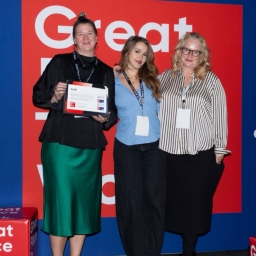Working in a multilingual team can be a huge asset. You’ve got diverse perspectives, cultural richness, and often, global reach.
But let’s be real—it can also come with some communication hiccups.
At ELAM, we’ve worked with tons of corporate teams navigating multiple languages. And while every team is different, there are a few classic communication pitfalls we see pop up again and again. The good news? Most of them are easy to fix with a little awareness and the right strategies.
Let’s break down three common ones—and what you can do about them.
![Multiethnic business people working together in the office. Group of multiethnic business people working together in the office]() 1. Misunderstandings That No One Wants to Admit
1. Misunderstandings That No One Wants to Admit
Let’s face it: not everyone is comfortable saying, “Sorry, I didn’t understand.” Especially in a fast-paced meeting. So, people nod along, hoping to catch up later… or not at all. And before you know it, a key point gets lost.
Fix it:
Create a team culture where it’s totally normal to ask for clarification. Use phrases like:
- “Just to make sure we’re on the same page…”
- “Could you repeat that in another way?”
Also, slow down when you’re speaking—especially in meetings with mixed-language speakers. Clear and simple always beats fast and fancy.
![]() 2. Over-Reliance on One “Strong” Language Speaker
2. Over-Reliance on One “Strong” Language Speaker
We see this all the time. There’s usually one person who’s super fluent in the company’s working language (let’s say English), and they end up doing all the heavy lifting—writing emails, leading calls, explaining things to others after meetings.
Helpful? Sure. Sustainable? Not really.
Fix it:
Try to balance communication tasks. Maybe Person A writes the client summary, while Person B presents the team update. Better yet—offer language support (hi, that’s us) to help more team members feel confident taking the lead.
![]() 3. Assumptions Based on Language Skills
3. Assumptions Based on Language Skills
Here’s a tricky one. Sometimes, team members unintentionally judge someone’s intelligence or expertise based on their language fluency. It’s subtle, but it happens. And it can affect how much someone speaks up—or how much their ideas are taken seriously.
Fix it:
Be aware of this bias and call it out when needed. Encourage a space where ideas matter more than grammar. And give people time to express themselves—whether that’s in writing, in smaller group chats, or with visual support.
The Bottom Line?
Multilingual teams are amazing—but smooth communication doesn’t always happen on its own. It takes intention, empathy, and sometimes a little help from the outside.
At ELAM, we specialize in corporate language training that supports real-life team dynamics. Whether you’re looking to boost your team’s English or French skills, or just want to improve cross-cultural communication, we’re here to help make things a whole lot easier (and more fun).
Want to chat about your team’s language goals? Reach out—we’d love to hear from you.


 1.
1.  2.
2.  3.
3. 













